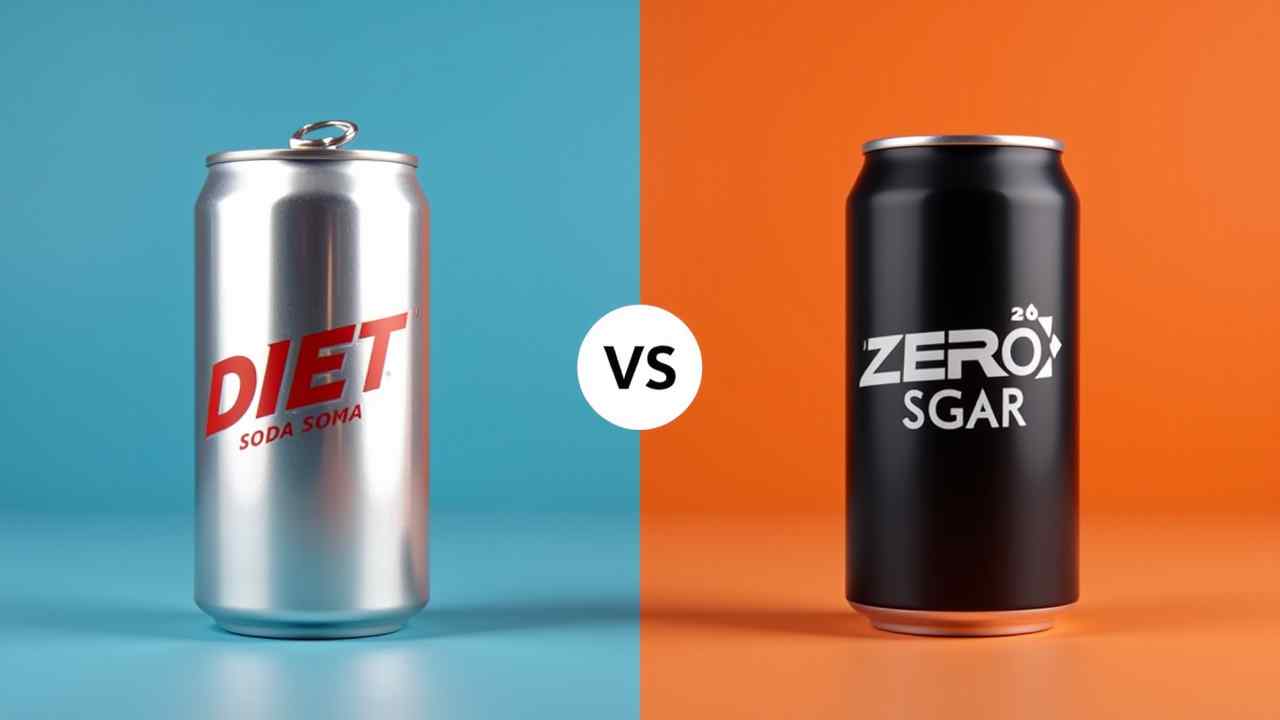
🥤 Diet vs. Zero Sugar: What's the Real Difference Explained
🥤 Diet vs. Zero Sugar: What's the Real Difference? 🥤
When you walk down the soda aisle, the choices can be confusing. You will see cans labeled "Diet" right next to ones labeled "Zero Sugar." Both promise no sugar and no calories. So, what is the real story here?
Many people wonder about the difference between diet and zero sugar. While they seem similar, they are distinct products. They often have different taste profiles, branding, and target audiences. They are not simply the same drink in a different package.
This guide will break down the key differences for you. We will use the most famous examples to explain. Let's clear up the confusion and help you choose your favorite fizzy drink. 🤔
😋 What is the Main Difference in Their Taste Profile and Goal?
The biggest difference is usually the taste. Each product is created with a very different flavor goal in mind. This is the main reason people have a strong preference for one over the other. It all comes down to what you want your drink to taste like.
"Diet" Products: A "Diet" drink is often its own, unique brand. Think of Diet Coke. It was launched in 1982 and was never meant to be a copy of classic Coca-Cola. It has its own distinctively crisp and lighter flavor profile that has become iconic.
"Zero Sugar" Products: A "Zero Sugar" drink is almost always designed to taste like the original. Coke Zero Sugar's primary mission is to be a near-perfect mimic of classic Coke's taste. The goal is to deliver the original experience, just without the sugar.
🧪 How Do the Ingredients and Sweeteners Compare?
This is a major source of confusion. Many people believe that "Diet" and "Zero Sugar" always use different sweeteners. For example, they might think Diet Coke has aspartame while Coke Zero has something else. This is not always true.
In many countries, including the U.S., both Diet Coke and Coke Zero Sugar use the same type of sweeteners. They are both sweetened with a blend of aspartame and acesulfame potassium (Ace-K). The key difference between diet and zero sugar in this case is the specific ratio of that blend and the base flavors used.
However, for other brands, this can be different. Some "Zero Sugar" products might use sucralose (Splenda) instead of aspartame. The only way to be certain is to do one thing. Always read the ingredient list on the label.
🛍️ Is There a Difference in Branding and Marketing?
Yes, the branding often reflects the different taste goals. It also targets different types of consumers. The look and feel of the packaging tells a story about the product inside.
"Diet" Branding often has a separate identity. Diet Coke's silver can is a classic example. It is distinct from the red of classic Coke. Historically, this branding often appealed more to women.
"Zero Sugar" Branding is usually designed to look like the original. Coke Zero Sugar uses a black can with a red logo, closely tying it to the main brand. This branding was often aimed at men and a younger audience. They wanted the classic taste without the "diet" label.
🏆 What is the Final Verdict in a Nutshell?
So, what is the simple difference between diet and zero sugar? Let's summarize the key points. It is not about one being healthier than the other.
- Taste: "Diet" often has a unique, lighter flavor. "Zero Sugar" aims to taste just like the original, full-sugar version.
- Ingredients: They can be very similar or different. You must read the label to know which sweeteners are used.
- Nutrition: Both are zero-calorie and zero-sugar. From a nutritional standpoint, they are virtually identical.
The choice is entirely yours. It comes down to your personal preference. Do you want a taste that mimics the original? Or do you prefer a completely different, lighter flavor? Try both and see which one you like best. ✅